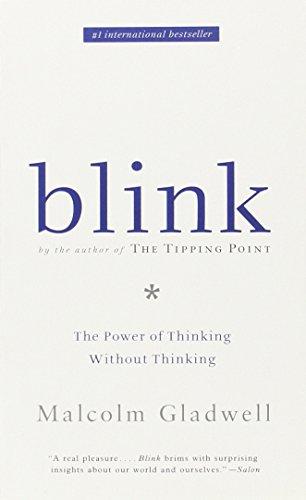
** The Power of Thinking Without Thinking
** The way we understand the world within
Notes:
- The mind operates most efficiently by relegating a good deal of high-level, sophisticated thinking to the unconscious.
- Decisions made very quickly can be every bit as good as decisions made cautiously and deliberately.
- When should we trust our instincts, and when should we be wary of them?
- Our snap judgement and first impressions can be educated and controlled.
- “Thin-slicing” refers to the ability of our unconscious to find patterns in situations and behavior based on very narrow slices of experience.
- Some key part of human activity — whether it is something as simple as pounding out a Morse code message or as complex as being married to someone — has an identifiable and stable pattern.
- Thin-slicing ofter delivers a better answer than more deliberate and exhaustive ways of thinking.
- Snap judgements and rapid cognition take place behind a locked door.
- If we are to learn to improve the quality of the decisions we make, we need to accept the mysterious nature of our snap judgements. We need to respect the fact that it is possible to know without knowing why we know and accept that — sometimes — we’re better off that way.
- Our first impressions are generated by our experiences and our environment, which means that we can change our first impressions — we can alter the way we thin-slice — by changing the experiences that comprise those impressions.
- Taking rapid cognition seriously — acknowledging the incredible power, for good and ill, that first impression play in our lives — requires that we take active steps to manage and control those impressions.
- How good people’s decisions are under the fast-moving, high-stress conditions of rapid cognition is a function of training and rules and rehearsal.
- Truly successful decision making relies on a balance between deliberate and instinctive thinking.
- Deliberate thinking is a wonderful tool when we have the luxury of time, the help of a computer, and a clearly defined task, and the fruits of that type of analysis can set the stage for rapid cognition.
- In good decision making, frugality matters.
- Whenever we have something that we are good at — something we care about — that experience and passion fundamentally change the nature of our first impressions.
- “When we make a split-second decision, we are really vulnerable to being guided by our stereotypes and prejudices, even ones we may not necessarily endorse or believe.”
- Our powers of thin-slicing and snap judgements are extraordinary. But even the giant computer in our unconscious needs a moment to do its work.
